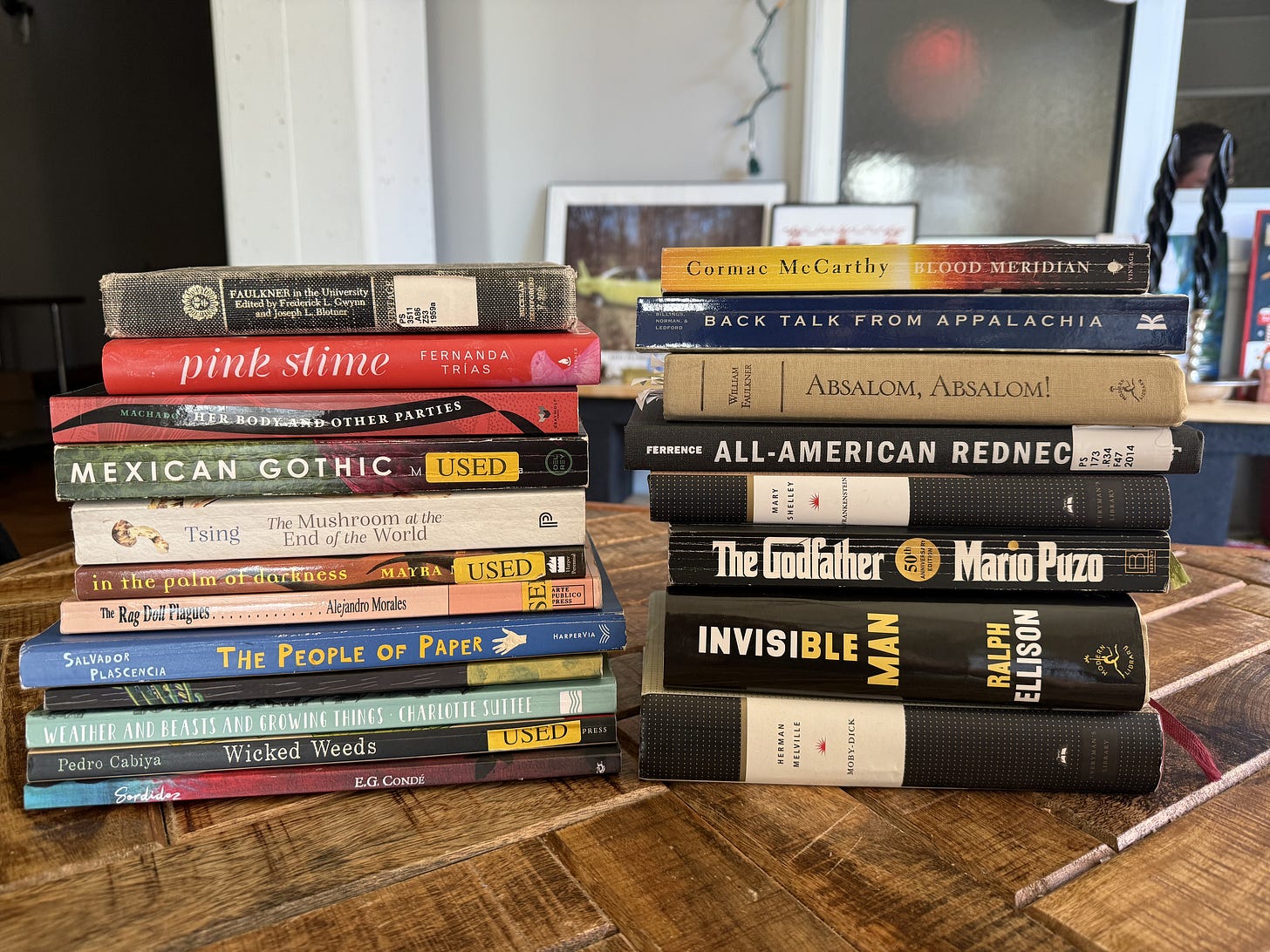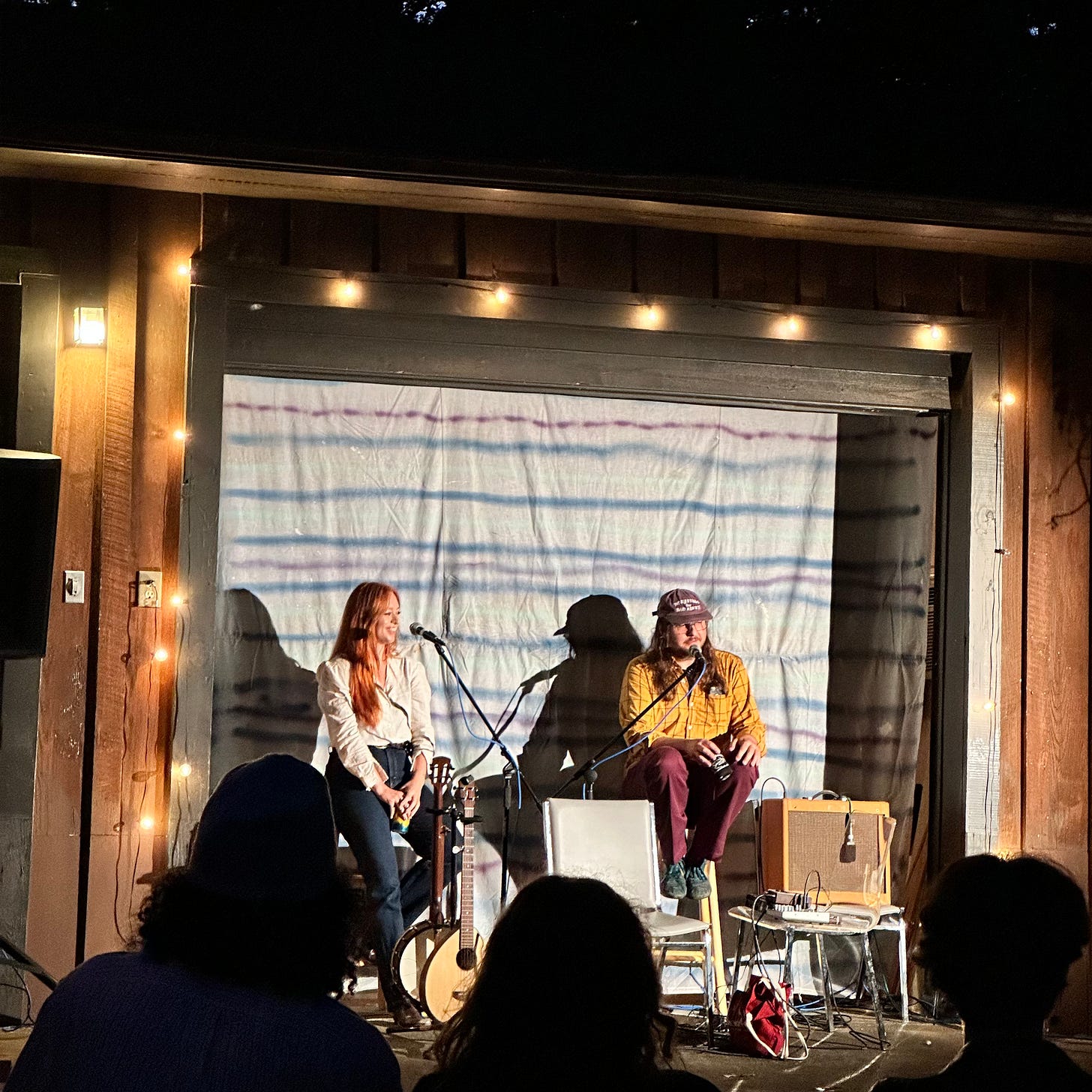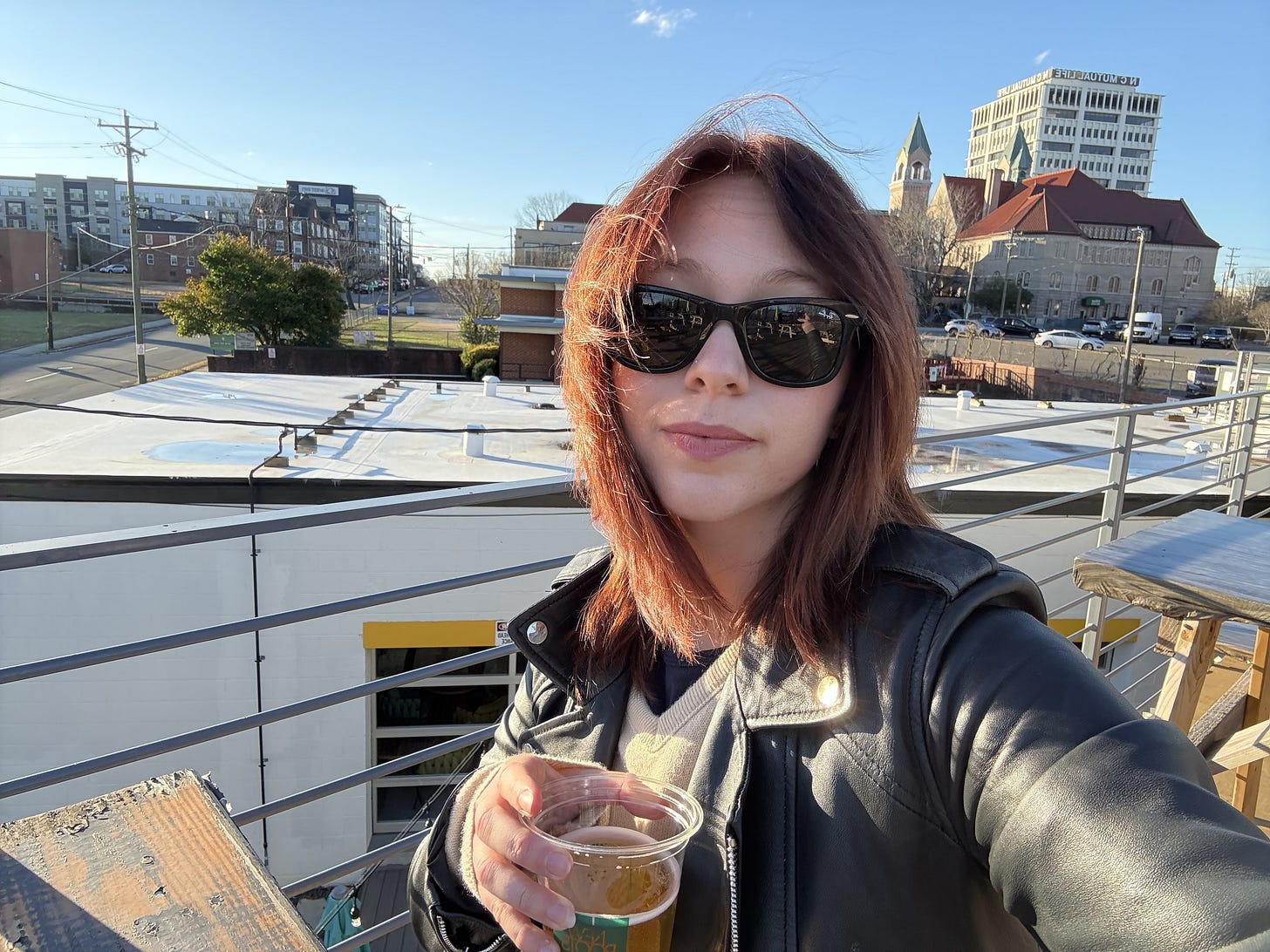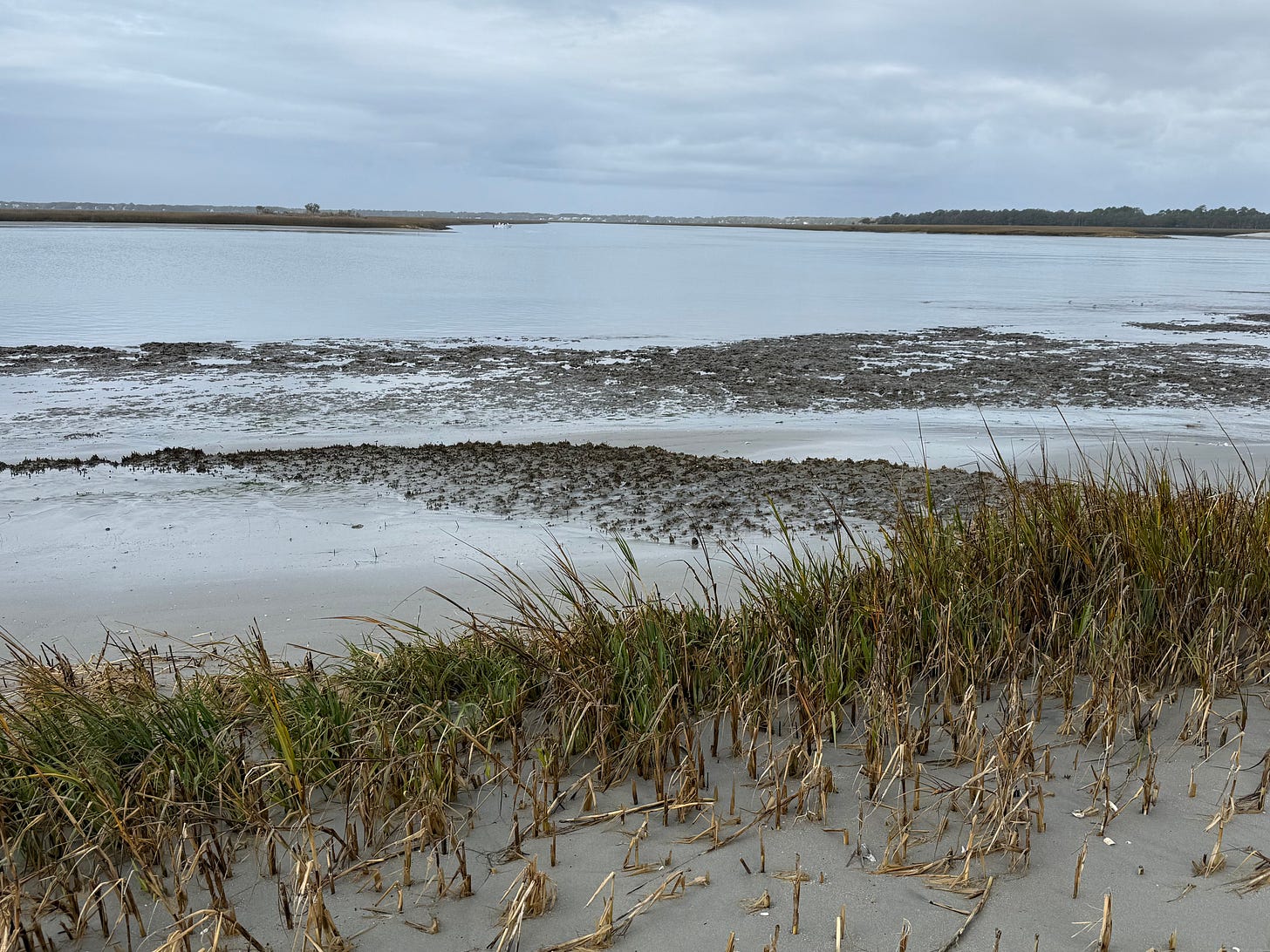Hello folks,
It’s been a long time since I’ve sat down to write to you here in the newsletter (though we have published quite a few excellent podcast episodes in my absence!). I don’t have a great excuse for it other than that I haven’t sat down to write because I have, for one of the first times in my life, felt I have nothing to say. This is not a point on substantive writing or that it matters to write anyway, but that I am taking a step back and reading, listening, observing the world before I filter it through an internal lens here. Of course, there is always thinking to be done; I have spent the last five months writing endlessly about the South in this new role as an academic—which perhaps is why I haven’t felt I had much to say here. But there is so much to be said—about this place, about our role within it, about the long histories of narrative stereotyping that I am only beginning to unpack in research, about the current state of American culture and how the idea of the South fits into it. I want to say so many things. I want to trust the thoughts that are forming, the things I am learning. I want to believe what I write. I want you to believe it, too.
But I am not there yet. I am thinking. I am living. I am being selfish about living. Last summer, on the last night of a month spent off-grid in Alaska, I watched the 10pm sun shine bright through the trees and wrote down in a battered journal: I am going to be so greedy with life when I leave here. And I’ve held myself true to that. After many years seeing little purpose in life, I am throwing myself, as Donna Tartt writes, headfirst and laughing into the holy rage. As a younger writer, I thought the holy rage meant breakdown, collapse, a creative imploding—to lean into darkness and attempt to pull something meaningful out of it. I am grateful to be old enough now to understand the holy rage as something else: the will to live at all costs, to exist in spite of. My joy is gall to a world which does not inspire it. My wonder is born out of anger at a system would which deprive us of its existence. These things go hand in hand for me.
This too is how I understand the South. I am drawn to my home because it is a duality, because it asks—in fact, it demands—that I question deeper, that I think more critically, that I observe the world with open eyes and refuse whatever easy story offered to me. I will say that though the region inspires this practice it is becoming clearer and clearer that so many others who call this place home are willing to accept the easy story. This easy story makes it feel good; it removes our own complicity in the matters at hand. But with that, I find, it removes our very agency, our ability to understand that while the past and present have been shaped by us, the future can be too.
This summer I tattooed a quote by Thoreau via Annie Dillard’s interpretation across my arm: know your bone. To know your bone is to understand duality, to lean on equal parts grit and worship. In my absence from this space, I have been attempting to become familiar with my bone. This new tattoo is on my right wrist; on my left wrist I have another similar metaphor: a bracelet woven out of vines and pine needles. To be like the pine, able to withstand and bend, stable and in flux. Duality.
“You were made and set here to give voice to this, your own astonishment. ‘the most demanding part of living a lifetime as an artist is the strict discipline of forcing oneself to work steadfastly along the nerve of one’s own most intimate sensitivity.’ Anne Truitt, the sculptor, said this. Thoreau said it another way: know your own bone. ‘Pursue, keep up with, circle round and round your life … Know your own bone; gnaw at it, bury it, unearth it, and gnaw at it still.’”
— Annie Dillard
Since I last wrote here, the poet Louise Glück passed away. I find myself coming back to her poem, “Witchgrass” (hear her read it here), often these days:
Something
comes into the world unwelcome
calling disorder, disorder—If you hate me so much
don’t bother to give me
a name: do you need
one more slur
in your language, another
way to blame
one tribe for everything—as we both know,
if you worship
one god, you only need
One enemy—I’m not the enemy.
Only a ruse to ignore
what you see happening
right here in this bed,
a little paradigm
of failure. One of your precious flowers
dies here almost every day
and you can’t rest until
you attack the cause, meaning
whatever is left, whatever
happens to be sturdier
than your personal passion—It was not meant
to last forever in the real world.
But why admit that, when you can go on
doing what you always do,
mourning and laying blame,
always the two together.I don’t need your praise
to survive. I was here first,
before you were here, before
you ever planted a garden.
And I’ll be here when only the sun and moon
are left, and the sea, and the wide field.I will constitute the field.
Are there any enemies? Do we accept animosity as the easy story? What remains after it all? I love her line on what is sturdier than personal passion. I want my bone to be sturdy in this way. I want to know it a hundred times over. So this is where I am: learning the world and my place within it. From there, we expand: I am here in this city in this state in this region in this country. I am a Southerner and an Appalachian and have also denied claim to both those things throughout my life. I was born elsewhere, though I have known no other home. I want this to matter, the way we reach out to one another over words typed into a flickering screen. I want to not need praise to survive. I am working on it.


In the meantime, a non-exhaustive list of things I have been up to in the last four months:
Finished semester one of my PhD. Cried for weeks on end wondering if this is the right place for me. Read Faulkner, once and then twice and now I cannot stop reading Faulkner. Cut all my hair off. Dyed it red and then brown and then bleached it just to dye it back. Went to Ireland and drank beer in back courtyards with new friends where we all spoke loudly about global rural solidarity. Ran one half marathon, and then four more. Fell deeper in love with someone every day; this is a life changing exercise. Watched friends fall in love too and felt the whole world collectively shifting under our feet. Presented to strangers about the South and why everyone in the world should pay closer attention to this region. Watched a place I love sink under water and then re-emerge in an incredible example of community care. Built a shelf. Read books. Read more books. Hosted a live event full of friends old and new. Wrote about the origins of the redneck in early Southern fiction. Wrote about how Southern authors were always aware of the stereotypes that would be placed upon them. Drove to Michigan and felt my fingers go numb in the snow. Drove to South Carolina and felt my feet go numb in the ocean. Committed to being where I am instead of running from stability. Signed up for a marathon. Made endless cups of coffee in the dark of early morning and read theory before the rest of the world was awake. Deleted social media. Thought about the novel I have been writing for four years but did not add a single page. Thought about going off grid again. Thought about walking away from it all. Chose instead to stay.




Oh, Spencer--yes, to all of this. Cheers to wherever 2025 takes you, you're good folk.
Thank you for sharing this.